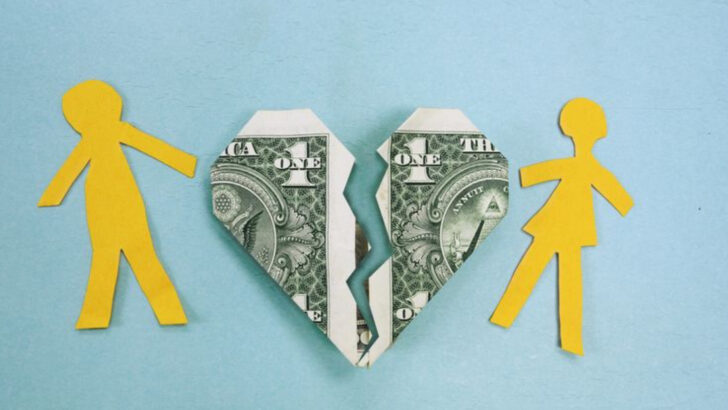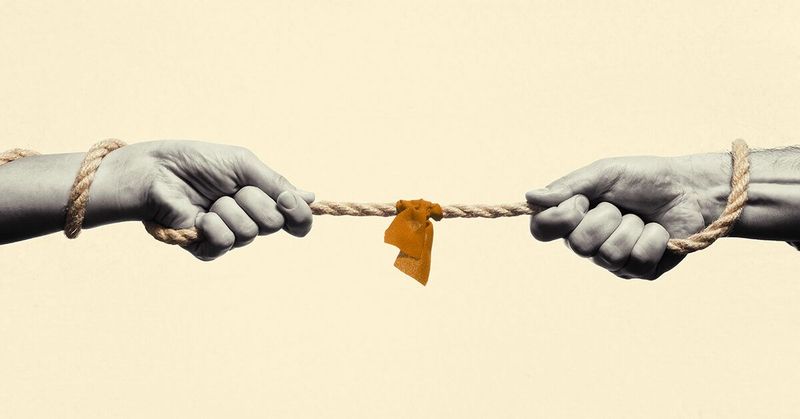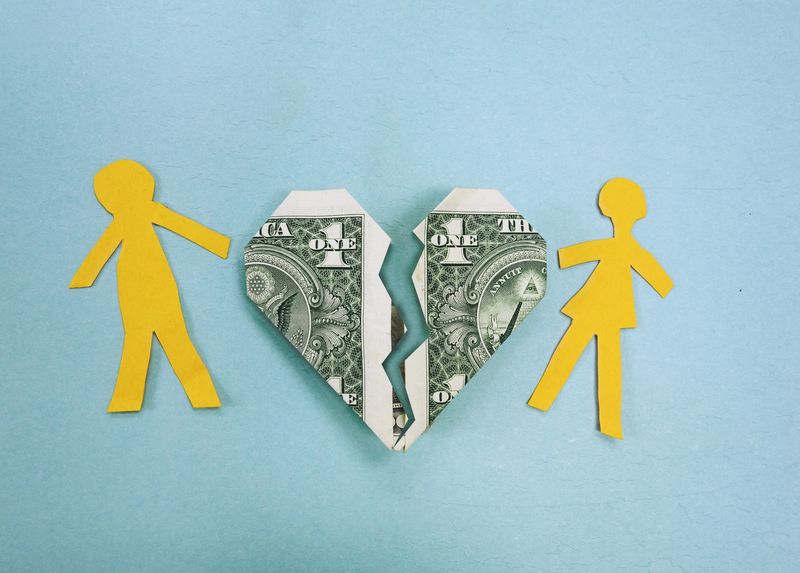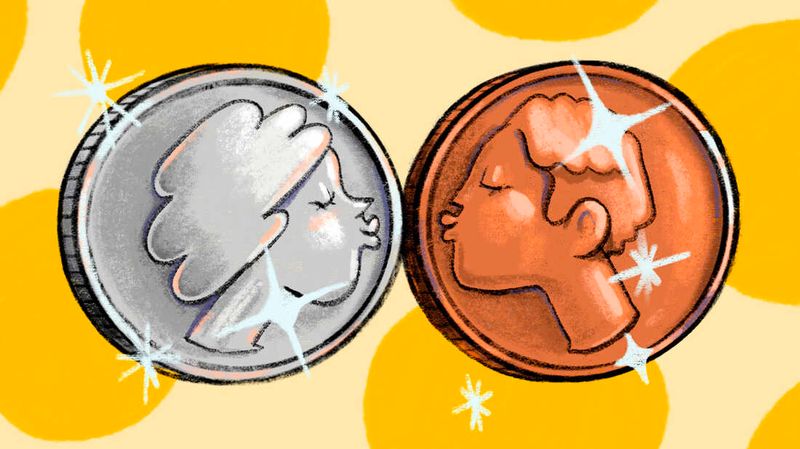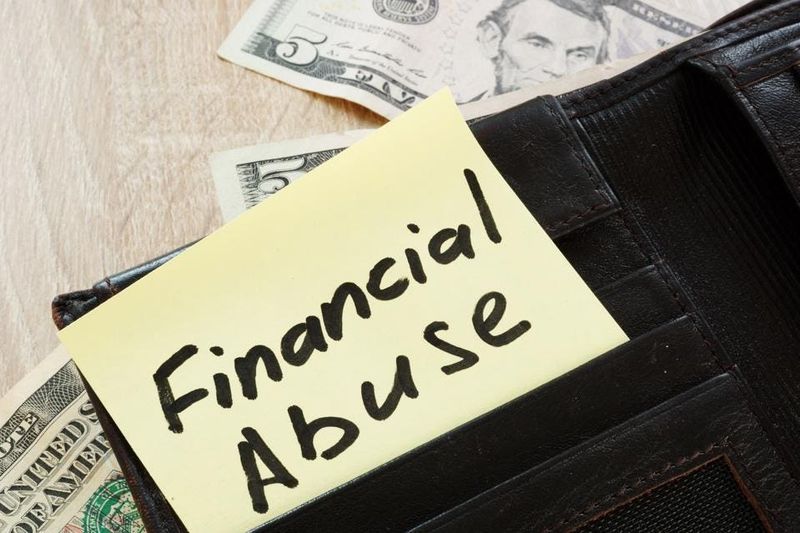There’s a moment when you look around your life and realize you’re only staying because the rent is paid, or the bills somehow disappear, or you’re terrified of being broke and alone. I get it. The cost of leaving feels impossible, and the world keeps telling you to just be grateful for what you have.
But staying stuck in a relationship that drains you—just because money says so? That’s a slow-motion heartbreak. This is the truth I wish someone had told me when I thought I couldn’t afford to choose myself.
If you need clarity, empathy, or a little push, here are 20 reasons financial dependence shouldn’t keep you in a place that steals your joy.
1. Power Dynamics
The math is simple but the feeling is brutal: the person with the money gets the last word. That’s not partnership—that’s a silent hierarchy, and it can leave you feeling like a child in your own home.
Maybe he never actually says, “my way or the highway,” but you can hear it in the way he sighs every time you ask for grocery money, or when he decides what’s “worth spending on.” Suddenly, you’re negotiating your needs like you’re pitching a business idea instead of just living.
Control can hide in the most ordinary moments: what to eat, what to buy, even how you spend your weekends. If your choices are always filtered through someone else’s priorities, it’s not just about money—it’s about power. And that’s a heavy price to pay for a relationship.
2. Loss of Autonomy
Remember when you could decide to grab a coffee on a whim, or sign up for a class just because you wanted to? Financial dependence turns those tiny freedoms into negotiations. Every choice gets filtered through someone else’s approval, and you slowly forget what it feels like to steer your own life.
It’s not just about the big stuff like moving cities or changing jobs—sometimes it’s as small as picking a brand of cereal. All of a sudden, you’re asking permission, not just for money, but for your own agency. It’s a slow fade; one day you wake up realizing you haven’t made a real choice for yourself in years.
It’s easy to lose track of who you are when your every step needs a green light from someone else. That’s not partnership—that’s house arrest, and your spirit knows the difference even if you try to talk yourself out of it. Freedom isn’t just nice; it’s necessary.
3. Vulnerabilidad emocional
The twisted part about depending on someone for money is how it sneaks under your skin. You start to feel grateful for scraps, apologetic for having needs, and guilty for dreaming about more. It’s as if your emotions are held hostage by your bank account balance.
Emotional vulnerability isn’t just about crying after a fight—it’s about living with the constant fear that if you say the wrong thing, the rug (and support) could vanish. You end up editing yourself, walking on eggshells, and pretending you’re fine even when your heart aches for something different.
I wish I could tell my younger self: your feelings aren’t a debt you owe for being cared for. If love makes you feel small and nervous, especially about money, it’s not really love—it’s an arrangement. And you deserve more than that.
4. Limited Exit Strategy
Have you ever tried to leave a bad situation and realized you literally couldn’t afford it? That’s the trap. You play out scenarios in your head—crashing on a friend’s couch, moving back with your parents, taking a job you hate—just to get away. But the fear of not making ends meet? That keeps you stuck longer than any “I’m sorry” ever could.
Planning an escape route shouldn’t require a secret bank account or a midnight getaway. Yet, when your finances aren’t your own, you feel like you’re living in a maze with no exit. Every day you stay is a compromise with your soul, trading peace for survival.
No relationship should leave you feeling imprisoned. If the only reason you’re staying is “I can’t afford to leave,” then what you really can’t afford is losing years of your life to someone else’s comfort.
5. Potential for Financial Abuse
It doesn’t always start with shouting or slammed doors. At times, it’s a partner “keeping the credit cards safe,” or monitoring your spending “for the family’s good.” Financial abuse wears a mask of protectiveness, but it’s really about control. You feel the noose tighten every time you ask for something basic and get told no.
The message is clear: you don’t get to decide, not even about your own future. It’s a slow erosion of trust and autonomy. You question yourself—“Am I being ungrateful? Overreacting?”
You’re not. Financial abuse is real, and it’s just as damaging as any other kind. The scars just don’t show up on your skin. You deserve transparency and respect, not gatekeeping and suspicion.
6. Impact on Self-Worth
No one tells you how quickly self-worth can decay when you’re not financially independent. At first, you tell yourself it’s practical, or temporary. But slowly, you start believing you don’t bring enough to the table. Every missed paycheck or skipped promotion chips away at your confidence.
You notice it in the little things—hesitating before sharing your opinion, backing down in arguments, apologizing just for existing. It’s like your value shrinks to match the size of your wallet, and after a while, you start blending into the wallpaper.
Money isn’t the only measure of worth, but independence is a kind of dignity. When you can’t support yourself, it gets harder to believe in yourself. That’s not a flaw; it’s a learned heartbreak. You deserve to feel proud of who you are, not just what you earn.
7. Difficulty in Equal Partnership
It’s strange how quickly “us” can turn into “me versus you” when the scales aren’t balanced. You try to talk about plans or dreams, but somehow they always get filtered through his priorities. It’s not just about who pays the rent—it’s about whose voice matters more.
You might keep score, counting favors or owed apologies, but it never equals out. The partnership is lopsided; it feels like you’re a guest in your own relationship. You start swallowing your opinions just to keep the peace.
True partnership means standing shoulder to shoulder, even when things get messy. If you’re always looking up, waiting for approval, you’re not in a relationship—you’re in a hierarchy. And love doesn’t need a boss.
8. Career and Personal Development Constraints
The irony? Sometimes we give up our dreams for comfort, and end up losing both. Maybe you stayed home for the kids, or paused your career so he could chase his. You tell yourself there’ll be time later, but the opportunities slip away while you wait for permission or support.
It’s painful watching others grow while you feel stalled. The classes you skip, the promotions you don’t go for, all start to add up. It’s not just money you’re trading—it’s your potential.
It can put your whole future on hold. You have ideas, talent, ambition. Don’t let them gather dust just because someone else holds the keys to “yes.” Growth is your right, not a privilege to be handed out.
9. Increased Stress and Anxiety
Do you get that stomach-drop feeling when you realize you have to ask for money, again? That’s anxiety wearing a nametag. Living with the constant worry of “Will he say yes? What if I need more?” is like living with a ticking clock in your chest.
Money stress isn’t just about math—it’s about feeling like you’re always on thin ice. You start skipping small joys (like coffee with a friend), just to avoid another awkward conversation. The longer it goes on, the heavier it gets.
Your mind runs circles around “what ifs.” What if he leaves? What if you’re alone and broke? That fear is paralyzing, and it seeps into every other part of your life. You deserve a life where money isn’t an everyday panic attack.
10. Potential for Resentment
Resentment isn’t always loud; sometimes it’s just a sigh, a cold shoulder, or a dinner eaten in silence. But it builds, day after day, every time you give up something that matters to you.
Maybe your partner pays the bills, but you pay in other ways—your time, your patience, bits of your dreams. That math never adds up evenly. Eventually, the tally of “what about me?” outnumbers any gratitude you feel.
Unspoken resentments are termites in the foundation of a relationship. Money isn’t the problem—feeling unseen and undervalued is. And that’s a debt no amount of gifts can pay back.
11. Difficulty in Setting Boundaries
It starts small—maybe you agree to skip a family event or lend money to his friend, just to keep things smooth. Before you know it, your "sí" is automatic, because saying "no" feels impossible. And when your money isn’t your own, even the smallest boundaries start to crumble.
You want to stand up for yourself, but there’s always a catch—“What if he gets angry? What if he cuts me off?” The cost of honesty feels too high, so you just give in. Over time, your life starts to look like someone else’s to-do list.
Healthy relationships need boundaries, not blurred lines. If you have to trade your comfort for stability, that’s not love—it’s survival. And you’re allowed to ask for more, even if it feels scary.
12. Limited Financial Literacy
Did you ever find yourself lost in a sea of numbers, pretending to understand but really just nodding along? When someone else handles all the money, you don’t learn the basics. You’re left out of conversations about budgeting, investing, even the bills.
Then, when (or if) you need to manage on your own, it’s like being dropped into a foreign country without a map. The world expects you to know what you were never taught. That’s not just unfair—it’s paralyzing.
Financial literacy isn’t about being a math whiz; it’s about having choices. When you don’t know what things cost, or how to save, you’re easier to control. Knowledge is power, and you deserve to feel at home in your own finances.
13. Impact on Children
Kids are sponges—they soak up everything, even the things we wish they’d miss. When they watch you tiptoe around money conversations or see the tension in your marriage, they learn that love is tied to power. That’s a hard lesson to unlearn.
Maybe you try to hide the struggles, but children pick up on unspoken fears. They notice when you hesitate before buying them something, or defer to your partner for every decision. They internalize these patterns, and it shapes their sense of security—and their own future relationships.
Breaking the cycle starts with showing them what healthy independence looks like. Your courage to claim autonomy isn’t just for you; it’s for them too. You’re teaching them what’s possible, even when it’s hard.
14. Legal and Financial Complications
No one likes thinking about breakups or divorce, but avoiding it doesn’t make it less real. If you’re not financially independent, the end of a relationship can feel like falling off a cliff—no net, no plan, just chaos. Suddenly, you’re juggling lawyers, divided assets, and unpaid bills.
Maybe you thought love would conquer all, but legal reality doesn’t care about romance. The system is slow, complicated, and rarely fair to those who’ve given up their financial power. You end up fighting for scraps, or worse, settling for less than you deserve.
Planning for the “what if” doesn’t mean you’re pessimistic. It means you’re realistic, and you’re protecting yourself. Love should be a shelter—not a gamble with your future.
15. Reduced Personal Fulfillment
There’s a special ache in watching life pass you by. You see friends chasing dreams, picking up new hobbies, or just laughing over takeout, and you feel stuck. Financial dependence isn’t just about what you can’t buy—it’s about what you can’t pursue.
Personal fulfillment is more than a paycheck. It’s the freedom to paint, to travel, to try and fail and try again. When your options shrink, so does your sense of possibility. You lose pieces of yourself you didn’t know you’d miss.
A rich life is made from small joys and hard-earned wins. You’re not selfish for wanting more. You’re human, and you should get to color outside the lines of someone else’s plan.
16. Difficulty in Negotiating Relationship Terms
Ever try to renegotiate the rules in a game you’re losing, but the other player holds all the cards? That’s what it’s like when money isn’t yours. You want to talk about boundaries, expectations, even date nights, but everything feels like a favor you have to earn.
You start censoring your requests or, worse, stop asking altogether. Negotiations become apologies. Your needs get demoted to “nice to have” status, and resentment creeps in.
A real relationship is built on mutual give-and-take, not IOUs. If your partner can’t meet you in the middle, it’s not negotiation—it’s submission. And no amount of budgeting skills will fix that imbalance.
17. Potential for Exploitation
Some people see vulnerability and see an opportunity. It isn’t always obvious at first—maybe it’s borrowing your credit card “just this once,” or getting you to co-sign a loan. When you can’t walk away, people will take what you won’t refuse.
Exploitation wears many faces. Sometimes it’s emotional, sometimes it’s financial, sometimes it’s both. You start to question your judgment, replaying old conversations and wondering where you went wrong.
Trust is fragile. Real love protects you; it doesn’t use your fear against you. You never owe anyone your security, no matter how good their excuses sound.
18. Impact on Social Relationships
You start declining invitations, making excuses about being too busy, when really—money is tight and you’re embarrassed. Your world shrinks. Friends stop asking. The silence is louder than you expected.
This isolates you in ways you never imagined. You miss birthdays, skip brunches, and lose touch with the people who make life colorful. Over time, loneliness sets in, and you start to forget what it felt like to be part of something.
Building your own financial base isn’t just about survival. It’s about reclaiming your place in the world, your right to show up and be counted, even when things are messy.
19. Difficulty in Establishing Trust
Trust starts with honesty, and nothing tests honesty like money. When you have to ask for every dollar, suspicion seeps in. You wonder if your partner’s keeping secrets—about spending, savings, even debts.
It’s hard to build intimacy when you’re not on equal footing. One person’s transparency becomes another person’s anxiety. You start hiding receipts, or stashing cash, just to feel a sliver of control.
Money shouldn’t be a weapon or a secret. If it is, trust dissolves, and the ground shifts beneath your feet. You deserve a relationship where honesty flows both ways, not just when it’s convenient.
20. Hindered Personal Growth
Growth happens in the spaces you carve for yourself. Financial dependence shrinks those spaces. You want to learn, to change, to risk failure and try again, but the cost of independence feels too high.
Maybe you put off classes, trips, or even therapy, telling yourself “someday.” But someday never comes when someone else controls the budget. You wake up years later realizing you’re the same person you were—just with more regrets.
You’re allowed to invest in your own evolution. The best version of you isn’t waiting at the end of someone else’s paycheck. She’s building her own ladder, one brave step at a time.

